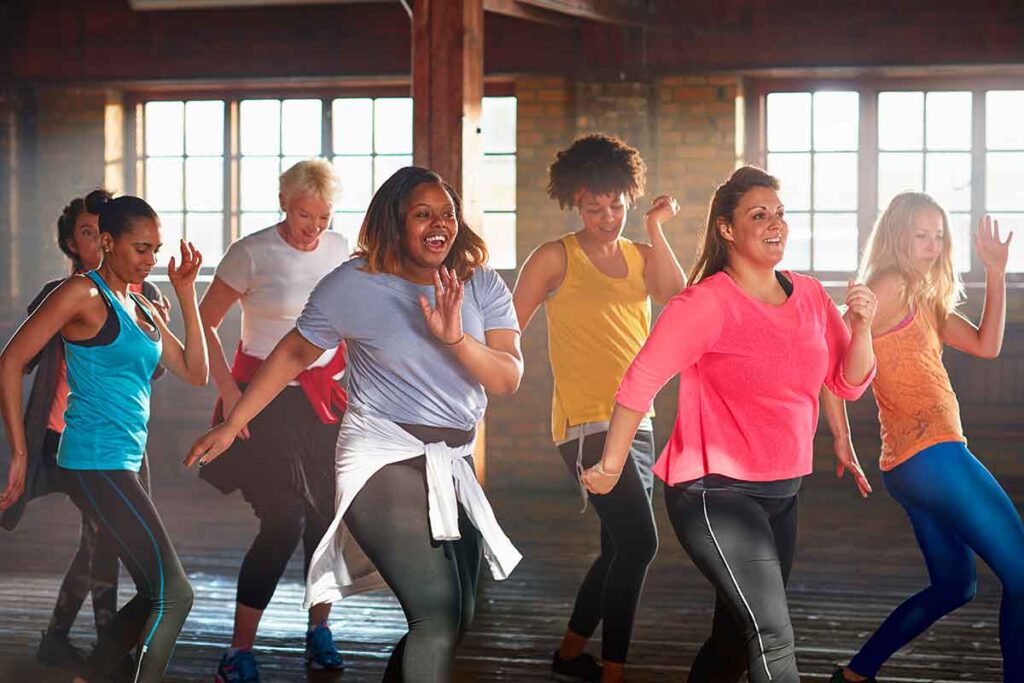Here’s how I know I’m not the only one wondering how to prevent dementia: Everywhere I go online, I’m getting bugged to download ‘brain games’ that promise to keep my memory from becoming as useful as a moth-picked wool coat. But do these ‘fun’ apps truly deliver? Will crosswords keep me sane as I age?
I sought out UVA Health neuropsychologist Donna Broshek, PhD, for answers. If anyone is going to have the scoop on preventing dementia and memory loss, it’s her.
Q: Are there particular activities or brain games that can help a person ‘stay sharp’ as they age?
Be physically active. Surprisingly, the mind-body connection is such that exercise is, Broshek says, “one of the very best things everyone can do to stay sharp. Research has shown that physical exercise has a very positive impact on brain health.”
Broshek gives no excuses:
- If you’re not active, talk to your doctor about how to get started safely.
- If you have health conditions or physical limitations, a physical therapist can help.
- If don’t have any limitations, get moving!
- If you’re already active, keep going!
Broshek’s hot tip: Try dancing. She explains that the combination of movement, coordination, music, and fun improve:
- Physical health
- Brain health
- Emotional health
Your move: Move! (Your body, not your thumbs.)
Q. What mental habits should we avoid to prevent memory loss?
Broshek’s answer: Not paying attention.
“It’s important to be mindful in daily activities,” Broshek says. When we stress out and get distracted, we mentally leave the present moment. We stop paying attention to what we’re doing right now. “This can result in attentional lapses that cause frustration and worry.”
Has this ever happened to you? You park outside the grocery store, focusing on what you need to buy. When you come out of the store an hour later, you’ve no idea where you parked.
Most of us, when this happens, think we’re losing our minds. We chalk it up to age and start to wonder if we’re getting early dementia.
But this common scenario, according to Broshek, isn’t a sign of memory loss. “You weren’t really paying attention to where you parked in the first place; you were busy thinking about the errands on your to-do list instead.”
Your move: Practice mindfulness. Even at the grocery store.
Q. Are there different stages of aging that require or would benefit from different types or amounts of activities?
Not really. “Any activity that involves learning is good for you at any age,” says Broshek. The bottom line: Stay cognitively engaged. You can accomplish this by trying new things.
You could:
- Read or listen to books
- Learn to play a musical instrument
- Pick up a new language
- Do puzzles or Sudoku
- Travel
- Dance
“At every stage of life, being physically active, participating in new activities, and learning new skills are important for brain health,” Broshek says.
Your move: Start a new hobby or sport!
Q. What can you do to prevent dementia, if anything?
I can’t confirm that the way to a man’s heart is through his stomach. But Broshek says the way to brain health is through the heart.
“While the likelihood of dementia varies based on individual health factors, we can all reduce the risk of dementia,” confirms Broshek. She advises people to work with a primary care provider to manage:
- Blood pressure
- Cholesterol in a healthy range
- Blood sugar (if you have diabetes)
“Anything that benefits heart health is important for brain health,” Broshek says. “Eat heart-healthy foods such as a variety of vegetables and fruits. Work with a dietician if you need help changing your diet.”
Your move: Eat brain-healthy foods. That is, eat heart-healthy.
Q. If you start to become forgetful at a certain age, is all hope lost?
“Not at all,” says Broshek. “While a small number of people have a higher risk of early onset dementia, most instances of forgetfulness in mid-life are due to other factors.”
Common reasons for forgetfulness include:
- Poor sleep
- Inactivity
- Stress
- Mood concerns
- Inattention
Get Moving Now!
We have a ton of expert tips to refresh your exercise routine.
“If you start to notice that you’re more forgetful, pay attention to the basics of sleep, nutrition, activity, and your overall health,” Broshek says. She underscores that research has shown sleep to play a key role in brain health.
Your move: Get enough sleep.
So…No Brain Games?
The quick list of how to keep your brain healthy:
- Exercise
- Practice mindfulness
- Learn new things
- Eat heart-healthy
- Get enough sleep
One activity Broshek did not recommend: Brain games on my phone.
Her final words: “And did I mention dancing?”
